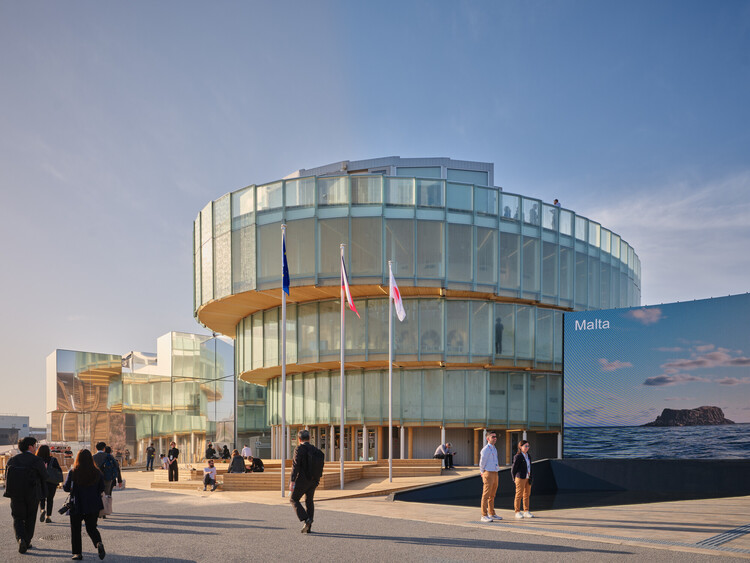
TheCzech Republic Pavilion at EXPO 2025 Osaka embodies the concept of life energy and continuous growth through its thoughtful architectural design. Created by Apropos Architects, the pavilion is centered around the motif of a spiral. Visitors experience a 260-meter-long pathway that wraps around the building, ascending gradually across four floors before culminating on the observation roof. This dynamic journey reflects the passage of time, individual development, and broader themes of personal and social progress.
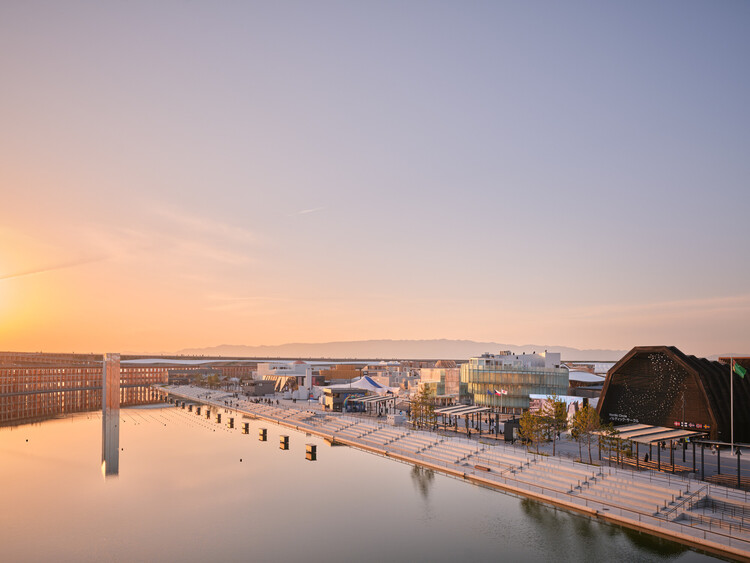
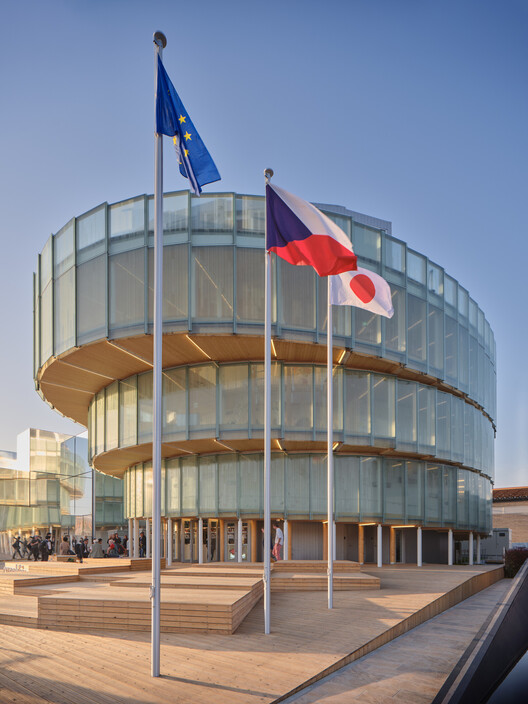
The pavilion's content demands a creative connection with spiritual and cultural ideals while openly urging visitors to engage in physical activity. It focuses on the concept that the movement of the body and the soul can shape a place, with a dynamic ascending spiral designed as a metaphor for the ideal life path. As visitors actively move within the pavilion, the cultural content materializes, culminating in a journey that generates lasting inner energy. The pavilion garners attention in all weather conditions with its impressive glass exterior, highlighting its prominent location on the edge of the coastal promenade. It pays homage to the long tradition of glassmaking in the Czech Republic and offers unique display rooms with ever-changing interior ambiance.
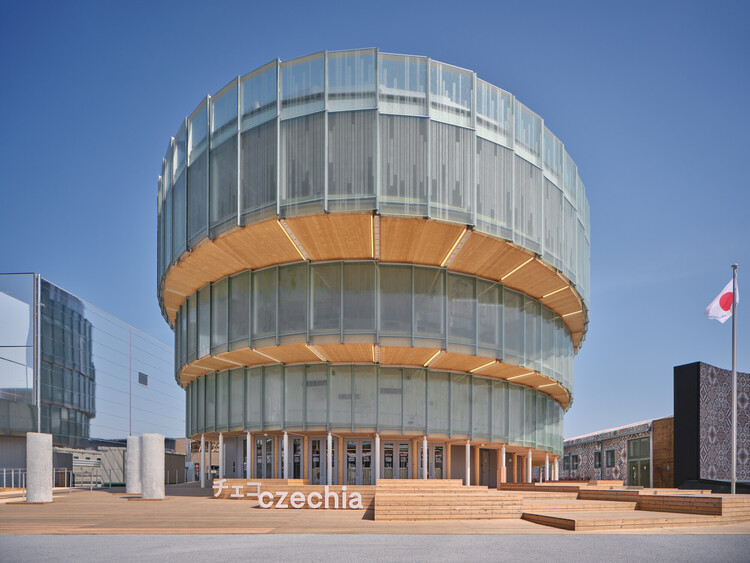
The frozen spiral trajectory directly corresponds to the internal arrangement that shapes the exterior of the house. The accessible spiral ramp encompasses the exhibition space, revolving around the central element of the hollow multifunctional auditorium tube. This tube has a diameter of fifteen and a half meters and reaches a height of twelve meters above ground level. Alongside it, the exhibition ramp ascends, accompanied by a seating ramp that creates an auditorium within the auditorium, accessible from various points along the spiral.
Related Article
Studio MK27 and Magnetoscope Win Competition to Design the Brazil Pavilion at Expo Osaka 2025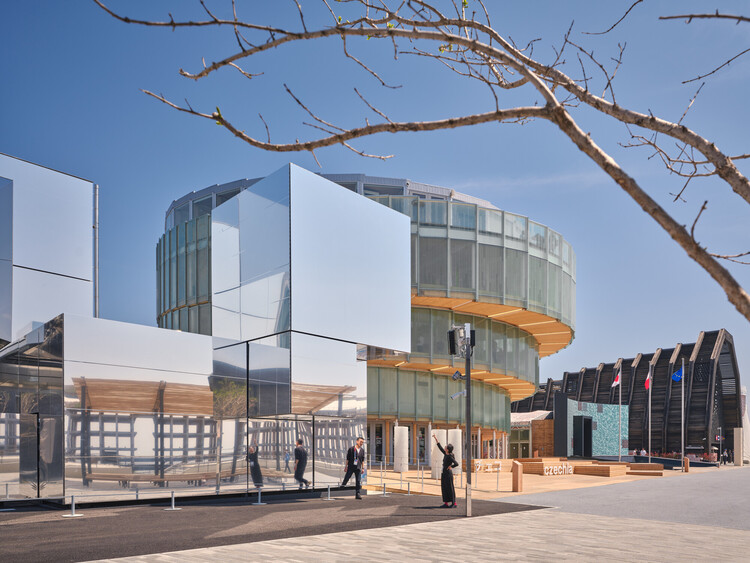
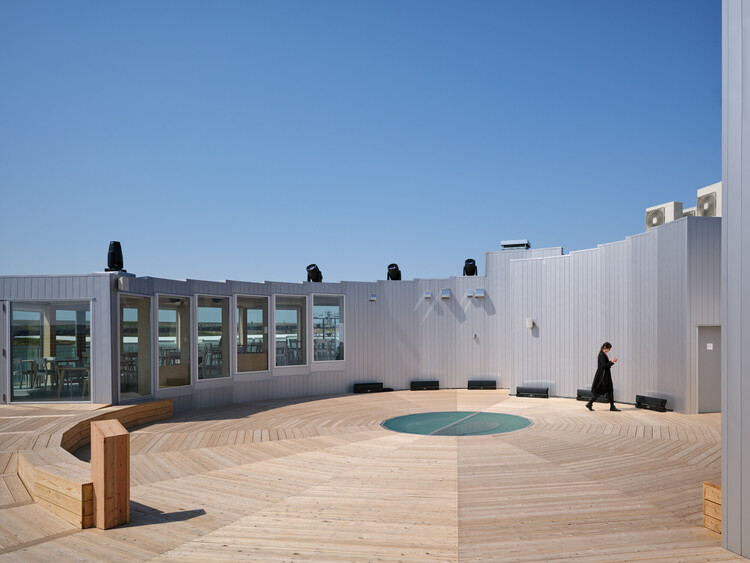
Following a logical sequence around the auditorium, the spiral functions as an exhibition and communication ramp, allowing visitors to ascend smoothly and in a linear fashion. The exhibition space on the ramp spans 402 square meters, and the ramp's width varies between 1.8 and seven meters. At the twelve-meter mark, the ramp transitions into a spacious viewing terrace, complete with a restaurant and bar. This additional space offers a serene view of the sea surface and a glimpse through the glass skylight into the auditorium.
A staircase, integrated into the cavity of the double walls of the cylinder, provides a path down to the ground floor of the commercial building, which also serves as an integral part of the exhibition, serving as its final chapter. The structural concept revolves around a regular framing system of CLT wooden panels, forming a continuous structure that harmonizes with the chosen spiral exhibition ramp. The ramp is divided into thirty-six segments within a single revolution around the auditorium. This division ensures sufficient construction readiness, ease of disassembly, and transportability.
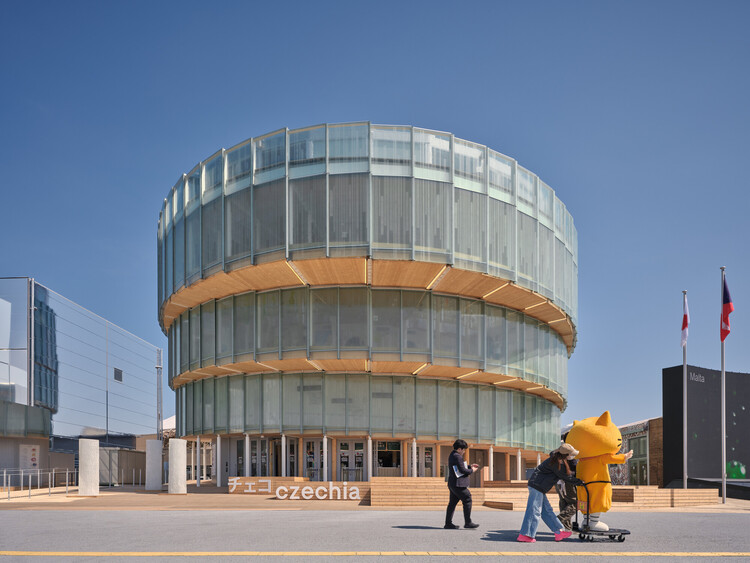
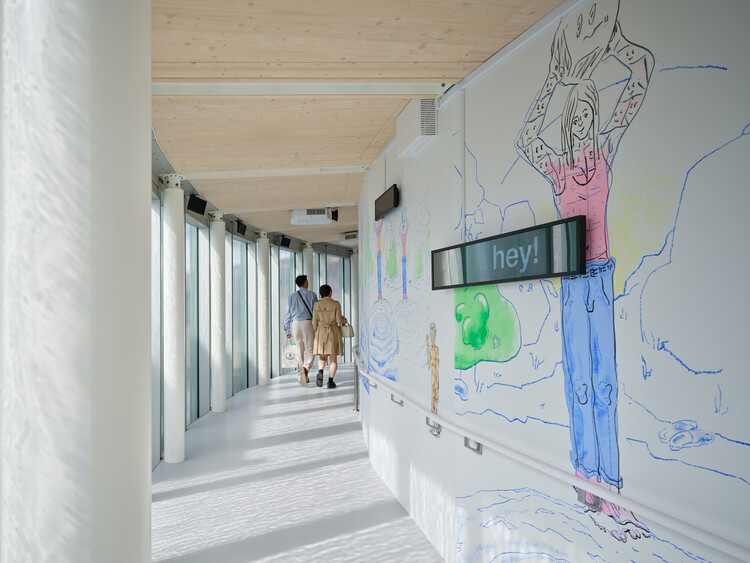
Adhering to the exhibition grounds' overall concept, the pavilion's primary energy source is electricity. Rainwater is collected from the paved areas and reused after necessary modifications. The pavilion's geometry actively contributes to shading indoor and outdoor spaces, aided by integrated screen blinds. A central air conditioning unit is also installed in the utility room and connected to a central cooling source.
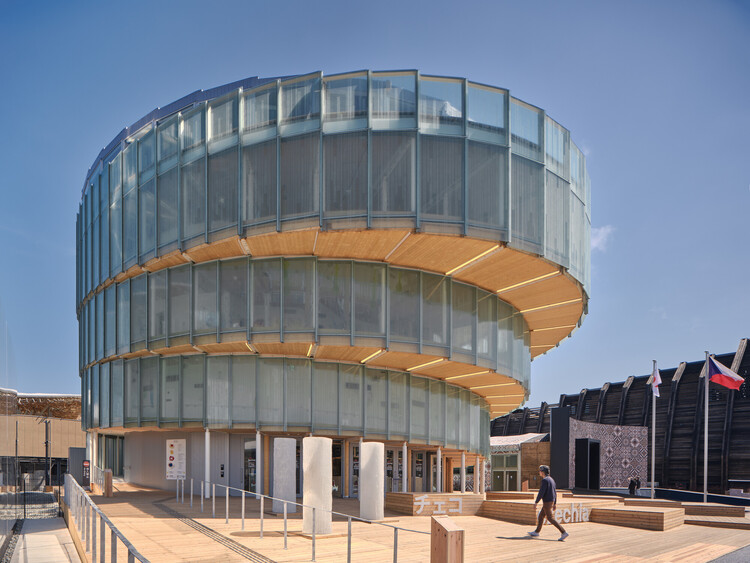
World Expos provide a unique platform for countries to present their latest advancements, cultural heritage, and visions for the future. This year's event continues this tradition by highlighting contributions from around 500 participants from 150 countries. The United Kingdom's pavilion explores artificial intelligence as a tool for humanity, showcasing how it can address global challenges. Switzerland's pavilion highlights the theme of nature and innovation, focusing on sustainability and its mountainous landscapes. Meanwhile, The Netherlands' pavilion emphasizes clean energy and circular design, presenting solutions for a sustainable future.
We invite you to check out ArchDaily's comprehensive coverage of Expo Osaka 2025.
Editor's Note: This article was originally published on May 23, 2023, and updated on June 23, 2025, following the official opening.

























